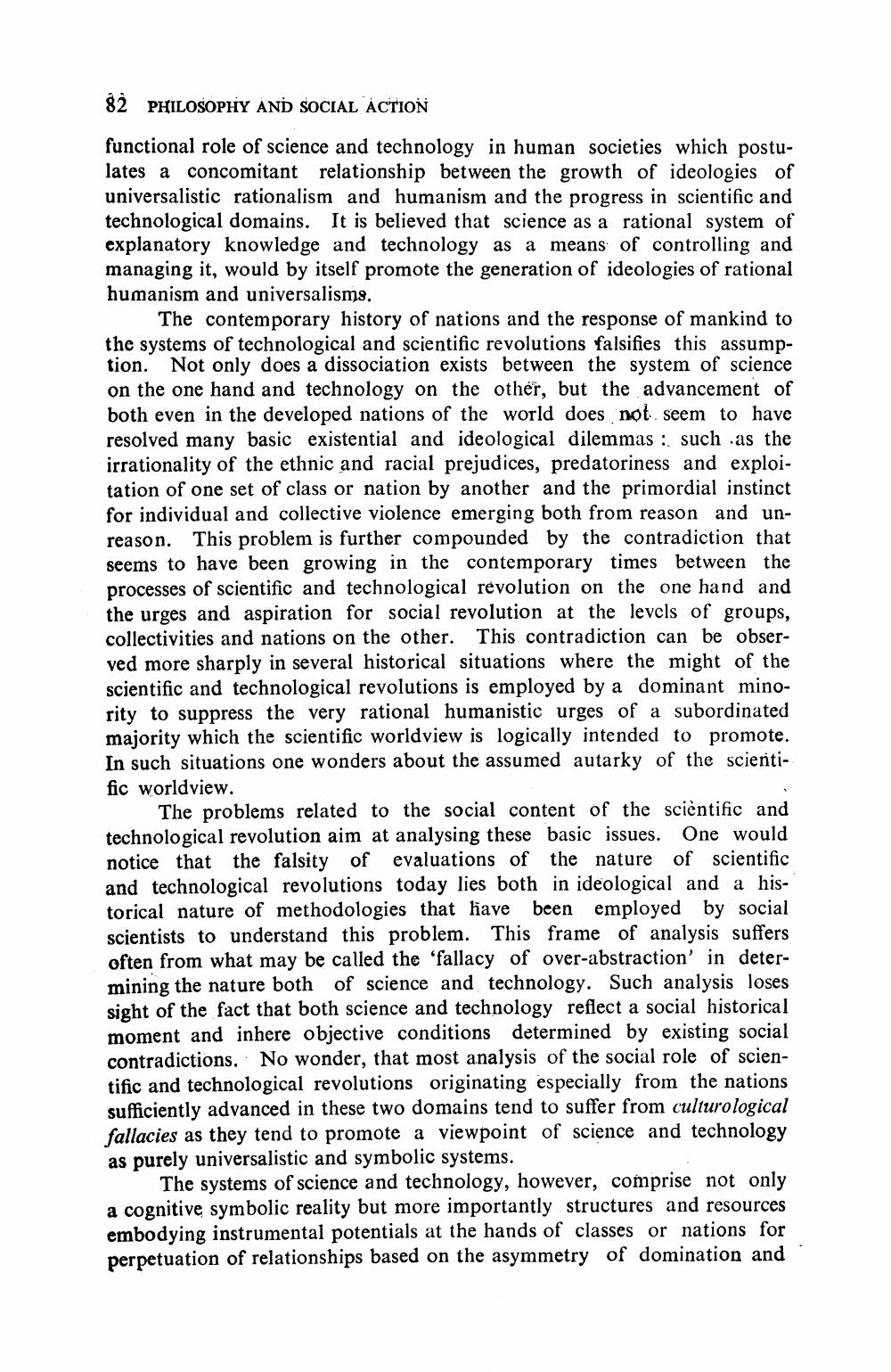Book Title: Social Contents Of Scientific And Technological Revolution Author(s): Yogendra Singh Publisher: Yogendra Singh View full book textPage 2
________________ 82 PHILOSOPHY AND SOCIAL ACTION functional role of science and technology in human societies which postulates a concomitant relationship between the growth of ideologies of universalistic rationalism and humanism and the progress in scientific and technological domains. It is believed that science as a rational system of explanatory knowledge and technology as a means of controlling and managing it, would by itself promote the generation of ideologies of rational humanism and universalisme. The contemporary history of nations and the response of mankind to the systems of technological and scientific revolutions falsifies this assumption. Not only does a dissociation exists between the system of science on the one hand and technology on the other, but the advancement of both even in the developed nations of the world does not seem to have resolved many basic existential and ideological dilemmas: such as the irrationality of the ethnic and racial prejudices, predatoriness and exploitation of one set of class or nation by another and the primordial instinct for individual and collective violence emerging both from reason and unreason. This problem is further compounded by the contradiction that seems to have been growing in the contemporary times between the processes of scientific and technological revolution on the one hand and the urges and aspiration for social revolution at the levels of groups, collectivities and nations on the other. This contradiction can be observed more sharply in several historical situations where the might of the scientific and technological revolutions is employed by a dominant minority to suppress the very rational humanistic urges of a subordinated majority which the scientific worldview is logically intended to promote. In such situations one wonders about the assumed autarky of the scientific worldview. The problems related to the social content of the scientific and technological revolution aim at analysing these basic issues. One would notice that the falsity of evaluations of the nature of scientific and technological revolutions today lies both in ideological and a historical nature of methodologies that have been employed by social scientists to understand this problem. This frame of analysis suffers often from what may be called the 'fallacy of over-abstraction' in determining the nature both of science and technology. Such analysis loses sight of the fact that both science and technology reflect a social historical moment and inhere objective conditions determined by existing social contradictions. No wonder, that most analysis of the social role of scientific and technological revolutions originating especially from the nations sufficiently advanced in these two domains tend to suffer from culturological fallacies as they tend to promote a viewpoint of science and technology as purely universalistic and symbolic systems. The systems of science and technology, however, comprise not only a cognitive symbolic reality but more importantly structures and resources mbodying instrumental potentials at the hands of classes or nations for perpetuation of relationships based on the asymmetry of domination andPage Navigation
1 2 3 4 5
